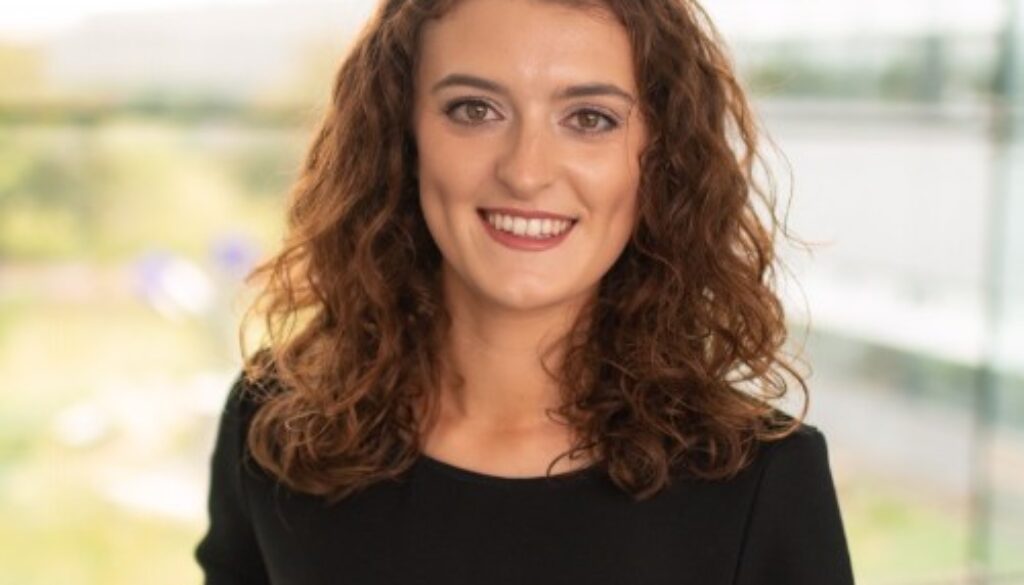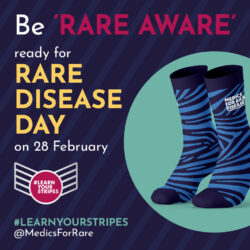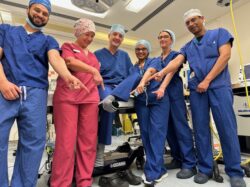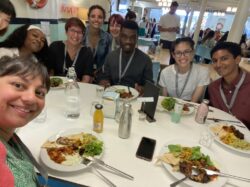Meet Megan Pullein – Research Project Manager
Hello, I’m Megan Pullein. I am excited to join Medics for Rare Disease as a Research Project Manager, working on our contribution to the RDI-Lancet Commission on Rare Diseases. A new global initiative run by Rare Diseases International and the lancet to ensure Rare Disease is visible globally.
About me
I have spent the majority of my career as a research scientist in the drug development process, working on preclinical drug discovery projects to progress potential drug candidates into the clinic. I have worked in both large pharma and biotech companies which has given me the opportunity to work in a range of disease areas including Rare. I am passionate about patient wellbeing and this is what drew me to a career in life sciences. I find this passion reflected in the work being carried out at Medics for Rare and I strongly admire the work they do and their vision to have equitable healthcare for all. I’m a big animal lover and always enjoy spending as much time with animals as I can. I love getting out into nature, especially to the beach, and spending quality time with my family.
My Career
My career began working in a microbiology lab for Thermofisher, working on culture media development and QC, after I finished college ahead of my university spot being held to study Biochemistry. Here I got offered the opportunity to study a BSc (Hons) Applied Biosciences degree as an apprenticeship course. At the time I had never heard of an apprenticeship course in the life sciences, it being one of the first of its kind, I enrolled into the second cohort of students in the new apprenticeship degree program. After completing the first half of my apprenticeship in the microbiology lab at ThermoFisher, I moved to Astrazeneca to complete the second half of my course whilst working in drug discovery as an assay development scientist. Although a more unconventional route into scientific research I loved being able to study and having the opportunity to get practical experience working alongside and learning from talented scientists and industry leaders working on drug discovery programs. As well as contributing to drug discovery research programs focused on therapeutics for patients, which I then continued working on after graduating. I then transitioned to a smaller biotech company focused on researching neurodegenerative diseases, with an emphasis on biomarker detection for Parkinson’s and Alzheimer’s disease. Followed by my most recent laboratory-based role, contributing to research in the field of rare diseases. During this time, I also became actively involved in the rare disease community, engaging with fellow researchers, patient advocacy groups, and individuals with lived experience, which deepened my understanding and commitment to this area of work. I am now pleased and grateful for the opportunity to contribute to the essential work being run by the RDI-Lancet commission on rare disease and their very important mission to make Rare disease a priority in health, society, and research globally.
Rare Diseases International-Lancet Commission on Rare Diseases
The vision: Rare disease is visible globally.
The Mission: Rare disease is a priority in health, society, and research globally.
There are more than 6000 rare diseases estimated to impact 200-400 million people worldwide. The RDI-Lancet commission on Rare Disease is a new global initiative dedicated to generating evidence and equity-informed recommendations that are implementable and impactful across the world to dramatically improve the lives of People Living with a Rare Disease (PLWRD). The initiative brings together 27 commissioners representing countries around the world to make recommendations on implementing global recognition and action. Split between 5 working groups each focussed on a different challenge faced by PLWRD.
WG1: Visibility for human rights.
WG2: Visibility in society and services.
WG3: Visibility in data and metrics.
WG4: Visibility within the healthcare system and other sectors.
WG5: Visibility for clinical pathways.
At Medics for Rare Disease our CEO Lucy Mckay is chair of working group 2, researching visibility in society and services. We will be working alongside collaborators and PLWRD to generate evidence based recommendations and actions towards societal justice for PLWRD. To ensure that all people living with a rare condition are supported by society and services to live well and that their voices are heard globally. The challenges faced by PLWRD are common globally including the diagnostic odyssey, inadequate care through lack of awareness, stigma and discrimination. In addition to high cost care which causes barriers especially in low and middle income countries.
The RDI-Lancet commission on Rare Disease comes at an exciting time following the resolution for rare being passed at the world health assembly, making rare disease a global health priority. Striving towards a global action plan to ensure PLWRD are seen, heard and cared for.
To find out more about the commission visit their website:
https://www.rarediseasescommission.org/
To find out more or to get involved in the research of working group 2 please reach out
to global@m4rd.org




